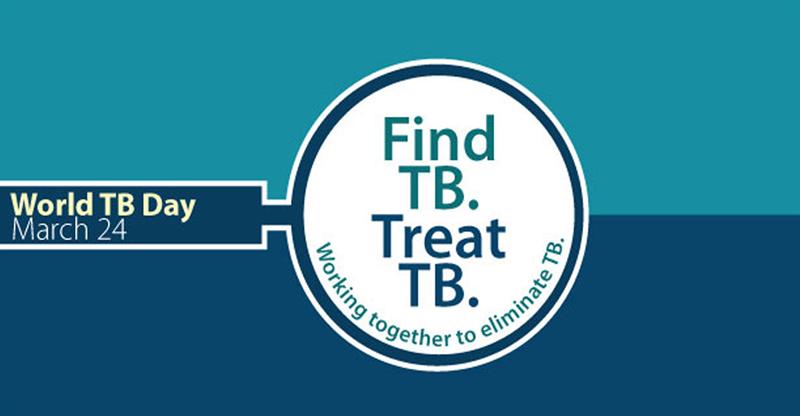Worldwide, tuberculosis ranks as the second leading cause of death from an infectious disease, after the Human Immunodeficiency Virus (HIV).
 CARPHA Executive Director Dr. C. James Hospedales stated today, that tuberculosis remains a public health priority for the Caribbean region with more than 30,000 new cases occurring every year.
CARPHA Executive Director Dr. C. James Hospedales stated today, that tuberculosis remains a public health priority for the Caribbean region with more than 30,000 new cases occurring every year.
His comments were made in commemoration of World Tuberculosis Day, March 24. This year’s theme, "Find, Treat, Cure TB" focuses on tuberculosis diagnosis and case detection of those still not reached.
Tuberculosis is a potentially serious infectious disease that mainly affects your lungs, and is spread from one person to another through droplets released into the air via coughs and sneezes. Persistent cough, fatigue, fever, night sweats, and weight loss are common signs and symptoms of TB.
Progress toward the control of tuberculosis in the Caribbean has been slow, despite recognition that increasing trends for the disease pose a threat to public health. The Caribbean still has to increase its efforts in order to achieve the United Nations Millennium Development Goal (MDG) 2015 target to reduce by 50 percent the burden of TB (disease prevalence and deaths) relative to the 1990 levels.
Several Caribbean countries still have high tuberculosis incidence rates; while HIV/AIDS, a shortage of laboratory capacity, limited treatment success and program funding gaps are among the factors that contribute to the prevalence of TB.
“TB control must be mainstreamed into the health agenda as with HIV, and include broader strategic planning approaches and financial frameworks aimed at poverty reduction," Dr. Hospedales said. "It is essential that Caribbean countries ensure high quality TB services through implementing the components of the Stop TB Strategy, and through activities that target prevention and control to fit their respective epidemiological situation.”
He added that efforts should be strengthened to ensure good quality TB programs that enable prompt identification and adequate management of people with TB; and to implement infection control measures which include strengthening of HIV counseling and testing among people with TB, making antiretroviral therapy (ART) available for all people with TB living with HIV, and better data to assess the performance of TB/HIV collaborative activities including prevention of TB among people living with HIV in the population.
CARPHA serves as the regional reference and referral laboratory for the diagnosis of TB and drug resistant TB in the Caribbean. It is equipped with a molecular diagnostic system (GeneXpert®) for the fast detection of TB and for TB resistant to Rifampicin (one of the antibiotics used to treat TB).The agency also provides assistance to TB programs in its member states, investigates TB outbreaks, and contributes to the regional TB surveillance through yearly reporting to the World Health Organization (WHO).
WHO has developed a post-2015 global TB strategy that was approved by all member states at the May 2014 World Health Assembly. The overall goal of the strategy is to end the global TB epidemic, with corresponding 2035 targets of a 95 percent reduction in TB deaths and a 90 percent reduction in TB incidences compared with 2015, and a 2050 target of TB elimination as a public health problem.
Dr. Hospedales stressed that efforts to combat TB must be accelerated if the post-2015 targets are to be met.
"Political commitment, as well as communication, cooperation and collaboration with healthcare workers at all levels of the health sector and the population at large, are essential for the achievement of TB program goals,” he said.
World Tuberculosis Day is used to build public awareness that TB remains a major global health problem, responsible for illness among 9 million new people each year, and deaths of 1.5 million.
Worldwide, TB ranks as the second leading cause of death from an infectious disease, after the human immunodeficiency virus (HIV).